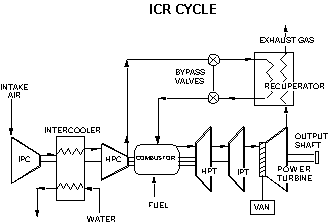A turbo shaft is no different from a turbo prop. The principle is the same, both are not directly connected to the high pressure turbine.
Specific fuel consumption varies widely from engine to engine.
You cannot say that a gas turbine developed for auto racing cannot deliver the fuel consumption of today's engines.
When you take into account the pressure ratio then you look at how long gas turbines can go without servicing much less replacement then you get an idea of how conservative these engines are in terms of their performance.
If a turbine was developed for racing alone and only needed to last 1 year, it can be guaranteed that it will be even lighter and run even hotter, for leaner running.
This turbine is rated at a higher power, notice how much better the consumption is because of the increased pressure ratio:
http://www.rolls-royce.com/Images/CTS80 ... -11546.pdf
we are seeing values at
0.462 lb/hp/hr. and these are static ratings.
Now imagine if these were intercooled, and had all the energy recovery fandangles?
keep in mind these engines are like your typical road engine. They are intended for reliable, steady running. An F1 engine is not like your typical road engine, it's replaced after a few hundred km. now imagine an F1 gas turbine for the sole purpose of racing?
Why don't you admit it's feasible?





